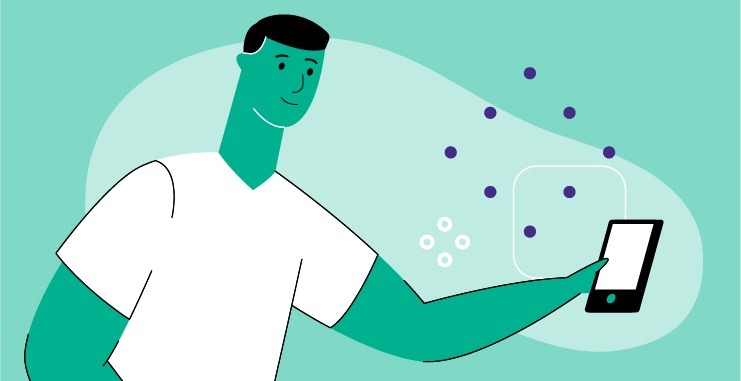Computer-assisted cognitive behavior therapy (CCBT) may outperform Treatment as Usual (TAU) in helping patients reduce depression, improve 6‑month remission rates
 Study: Computer-assisted cognitive behavioral therapy (CCBT) improved depression for primary care patients (MobiHealth News):
Study: Computer-assisted cognitive behavioral therapy (CCBT) improved depression for primary care patients (MobiHealth News):
Researchers found patients who used CCBT in addition to regular treatment led to “significantly greater improvement” on the Patient Health Questionnaire–9, used to screen for and measure depressive symptoms. Those results also held up over time.
“Results of this study show that treatment for depression in primary care can be enhanced by the addition of CCBT to TAU [treatment as usual],” the study’s authors wrote. “After 12 weeks of acute treatment, CCBT significantly outperformed TAU in reducing PHQ‑9 scores; these positive results were maintained over the 3- and 6‑month follow-up intervals. Remission rates were more than double for CCBT compared with TAU at all time points.”
The authors also noted the results were particularly valuable for diverse primary care settings, since many participants came from groups that are often underrepresented … The CCBT group included a computer program called Good Days Ahead, as many as 12 weekly phone conversations with a therapist plus treatment as usual at their primary care sites. Treatment as usual was uncontrolled, but some patients received antidepressants and psychotherapy.
The PHQ‑9, the Automatic Thoughts Questionnaire for negative thoughts, the Generalized Anxiety Disorder–7 survey and the Satisfaction with Life Scale for quality of life were administered at baseline, at 12 weeks, at three months and at six months after the treatment was completed. Participants were enrolled from June 2016 to May 2019, and the final follow-up occurred in early 2020.
The Study:
Effect of Computer-Assisted Cognitive Behavior Therapy vs Usual Care on Depression Among Adults in Primary Care: A Randomized Clinical Trial (JAMA Network Open). Key Points:
- Question: Does computer-assisted cognitive behavior therapy (CCBT) plus treatment as usual (TAU), compared with TAU alone, improve treatment outcome for depression in primary care patients?
- Findings: In this randomized clinical trial of 175 adults, CCBT reduced depression, as measured by the Patient Health Questionnaire–9, to a significantly greater extent than TAU and was associated with remission rates that were more than double those observed for TAU.
- Conclusions: The findings of this randomized clinical trial suggest that CCBT with a modest amount of clinician support has potential for wider-spread implementation as an effective, acceptable, and efficient treatment for depression in primary care. The method of CCBT described here may be useful in primary care patients with depression who have low levels of income, education, or reading proficiency as well as in those who lack internet access.
The Study in Context:
- CVS Health: Cognitive behavioral therapy (CBT) apps may help you more than sleeping pills
- FDA clears first CBT-based digital therapeutic to treat substance abuse disorders
- The FDA creates new Digital Health unit to reimagine regulatory paths in the age of scalable, AI-enhanced innovation
- Five reasons the future of brain enhancement is digital, pervasive and (hopefully) bright


